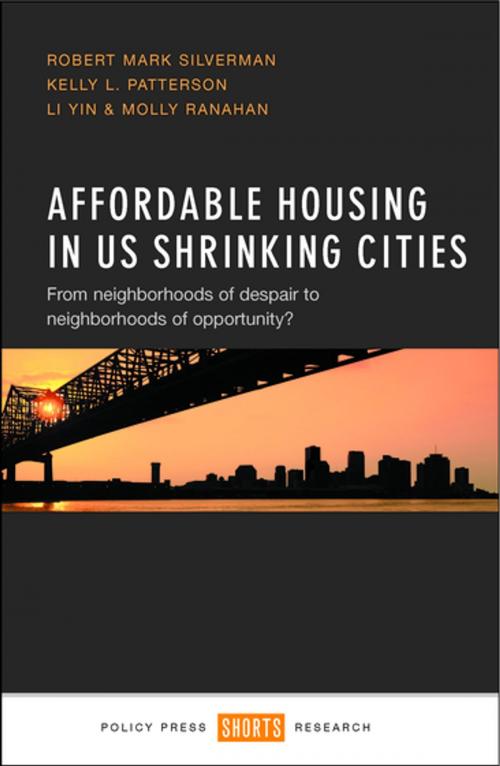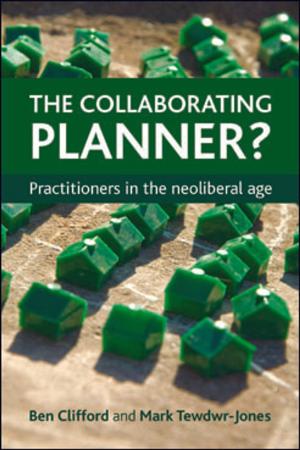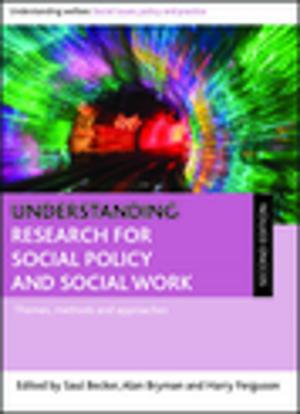Affordable housing in US shrinking cities
From neighborhoods of despair to neighborhoods of opportunity?
Nonfiction, Art & Architecture, Architecture, Planning, Social & Cultural Studies, Social Science, Sociology, Urban| Author: | Silverman, Robert Mark, Patterson, Kelly L. | ISBN: | 9781447327608 |
| Publisher: | Policy Press | Publication: | March 23, 2016 |
| Imprint: | Policy Press | Language: | English |
| Author: | Silverman, Robert Mark, Patterson, Kelly L. |
| ISBN: | 9781447327608 |
| Publisher: | Policy Press |
| Publication: | March 23, 2016 |
| Imprint: | Policy Press |
| Language: | English |
Given the rapid urbanisation of the world’s population, the converse phenomenon of shrinking cities is often overlooked and little understood. Yet with almost one in ten post-industrial US cities shrinking in recent years, efforts by government and anchor institutions to regenerate these cities is gaining policy urgency, with the availability and siting of affordable housing being a key concern. This is the first book to look at the reasons for the failure (and success) of affordable housing experiences in the fastest shrinking cities in the US. Applying quantitative and GIS analysis using data from the US Department of Housing and Urban Development, the authors make recommendations for future place-based siting practices, stressing its importance for ensuring more equitable urban revitalisation. The book will be a valuable resource for academic researchers and students in urban studies, housing and inequality, as well as policy makers.
Given the rapid urbanisation of the world’s population, the converse phenomenon of shrinking cities is often overlooked and little understood. Yet with almost one in ten post-industrial US cities shrinking in recent years, efforts by government and anchor institutions to regenerate these cities is gaining policy urgency, with the availability and siting of affordable housing being a key concern. This is the first book to look at the reasons for the failure (and success) of affordable housing experiences in the fastest shrinking cities in the US. Applying quantitative and GIS analysis using data from the US Department of Housing and Urban Development, the authors make recommendations for future place-based siting practices, stressing its importance for ensuring more equitable urban revitalisation. The book will be a valuable resource for academic researchers and students in urban studies, housing and inequality, as well as policy makers.















